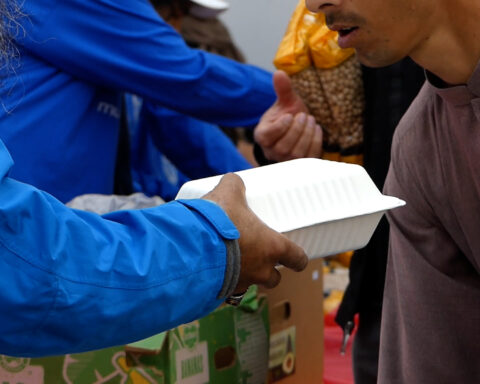Though Covid topped the worry charts for three years, several surveys by established organizations have revealed Canadians are now battling a bigger challenge: “stress and sleeplessness” caused by anxieties over finances.
A survey released by Bromwich+Smith found that the biggest stressor, reported by 82 per cent of those surveyed, was rising inflation and the increased cost of living.
This comes when the year-over-year inflation in Canada rose 7.7 per cent, the highest increase since 1983, and a new study from the Angus Reid Institute found that 45 per cent of Canadians say they are worse off now than they were at this time last year, the highest level in at least 12 years.
In addition, the Angus Reid study, released last week, found that one-third of Canadians expect next year to be even worse.
Recently the Financial Stress Index 2022 survey published by FP Canada identified that money — not personal health — was the primary cause of stress and lack of sleep among Canadians. It found that for 38 per cent of the Canadian population, money had displaced health as their main concern.
Other surveys show that Canadians were worried about their finances as the pandemic began to subside.
A separate survey by Mario Canesco, the president of Research.Co, in May 2021, found that three-in-five Canadians (60 per cent) fell below the recommended sleep guidelines on weekdays or workdays. In a sample online survey, 43 per cent of Canadians acknowledged that financial matters made it harder for them to fall asleep at night, while 36 per cent mentioned health.
Additionally, Scotiabank revealed in a poll released in December 2021 that 75 per cent of Canadians were concerned about their finances. On average, they reported worrying 10 hours a week, the equivalent of three weeks a year — up 25 per cent from 2020. A third of Canadians were kept awake at night from worrying
More Canadians are wide awake at night with questions like, how they’re going to afford a home, if they will have enough to pay for their children’s education and if they’ll have enough for retirement, observed D’Arcy McDonald, senior vice president of Deposits, Investments & Payments at Scotiabank.
One of the biggest mental health institutes in Canada, the Consortium for Organizational Mental Healthcare (COMH) in Toronto, which also studies sleep, told NCM it had received no specific cases about sleeplessness over money and that “financial stress as a factor for insomnia has not come up in the clinic.”
Financial stress higher than during the pandemic
According to another national survey by licensed insolvency trustees, Bromwich+Smith half of its 1,519 Canadian respondents recorded being more stressed in 2022 than they were during 2020 lockdowns.
Although many Canadians feel short-changed by financial structures and taxes, they also intend to spend cautiously in the future and maintain their pandemic money.
A darker view of finances was shown in a debt survey by Manulife Bank of Canada Online which said close to one in four homeowners feared if interest rates were to increase further, they would be forced to sell their houses. As much as 18 per cent of homeowners believe they can no longer afford the house they own. The incidence of indebtedness is up among Canadians. Furthermore, mortgage payments could jump 45 per cent by 2025 and 2026.
Financial stress of low-income immigrants
New immigrants are often in the position to suffer from the effects of low incomes. According to Statistics Canada, during the pandemic, recent immigrants were more likely to have at least one symptom of anxiety when compared to established immigrants and Canadian Citizens.
Louei Fahs, a Lebanese immigrant who came with his father in the 60s to Alberta spent sleepless nights in Canada worrying about where his next meal would come from.
“I moved to Ottawa, dropped out of Algonquin College, got married; I had a wife and no money. It was all sleepless nights. Then my haircutter took me under his wing. He trained me and in my desperation, I mastered the skill in six months. Life was hard and stressful, but I coped,” he said.
Today, Fahs is the proud owner of a classy barber shop on Beechwood Avenue in Ottawa. Now he looks after his parents and works seven hours. “I still cut hair. I am a happy man. Gone are the sleepless nights.”
However, not all new immigrants can be as fortunate. A Sri Lankan woman (name withheld) said she had applied for 33 different jobs after she had worked in a clinic for eight years. She lost her job when she returned to Canada after visiting her ailing mother back home.
Food, boarding and transport costs
Food is a necessity that is rapidly increasing in cost. During the past year, consumers paid 9.7 per cent more for food from grocery stores, according to Statistics Canada.
A recent poll from Food Banks Canada indicated that hunger and food insecurity have hit the lower-income groups the hardest and the reliance on food banks has increased since the pandemic. The study showed that 20 per cent of Canadians went hungry at least once between March 2020 and March 2022.
Varun Gupta a financial security Advisor and Personal Finance Planner stated that middle-income and low-income immigrants are severely hit by rising fuel costs and grocery bills. As a Chartered Investment Manager, Gupta found that petrol spending had gone up by $200 and grocery bills by $100 a month.
“The new immigrants live pay cheque to pay cheque. Now with the same income, they pay the extra billings with credit cards, and then spend time worrying how to pay them,” said Gupta.
Gupta stated some clients have already self-imposed restrictions on holidays, luxuries, and reducing miles travelled by car.
Canadians have been hit by sudden high gasoline and diesel prices. Gasoline prices increased 12 per cent in May after decreasing 0.7 per cent in April. While aircraft, cruise ships and commuters pay up, cars on the roads hardly ‘fill’er up’.
Gupta, who is also into real estate, says many clients have trouble paying their mortgages. Most of them have signed variable adjustment rate mortgages that are now being hiked by $300 to $500 per month. “Many people have given up wanting dream houses. They came to Canada to have a dream life and cannot now afford their own houses. With these kinds of mortgages, they have nightmares.”
Hitting all financial levels
Whether they make $45,000 or $450,000 a year, most Canadians fret about their bank balances and how to save their money effectively. While low-income people are hit the hardest, rising costs are putting more and more people out of money.
Gita Abraham is a journalist of 45-year standing and has worked in national dallies and magazines in New Delhi including Hindustan Times and India Today. For 15 years she was the Feature Editor of The City TAB in Bangalore. She was also a Professor of Journalism, at the Asian College of Journalism in Chennai. Treading the thin line between fact and fiction, Gita has launched her debut novel “Daughter of the Blue Hills” early this year. She and her husband are snowbirds shuffling between Chennai and Ottawa. She has two daughters and two frisky grandsons who inhabit her world.






It is more then stress it will start putting another strain on the healthcare system. I’m relatively healthy. I have worked my entire life. I burned through all my savings and now my mom is terminally I’ll. I have been waiting for compassionate leave but every time I call to find out why I have not received a payment I get oh you need to submit yet another form! I have been getting chest pains and I’m afraid my car will be repossessed because I am a payment behind. I have a large amount of money in a LIRA but am not allowed to access the money I need to survive at the moment. I received a bit of cash at the start of the year but that all went to rent I couldn’t pay and owed my landlord. They say I will need this money when I retire. Well I may never make it to that age and I worked my entire life that money is mine. I need it now. I’m not old enough to retire and take this money I’m 52, and the way inflation is rising who the heck my age will be able to retire to begin with. This is so frustrating and disappointing to be stuck in this situation with a dying parent. I can’t even put gas in my car to go see her and I have little hope she will still be alive by the time I do get a payment. I have yet to hear how the government is going to help with this problem it effects everyone even the higher income. I was a factory worker 35 years at the same company. Due to a housing shortage I had to relocate 50 km away from my hometown I had a nice little nest egg that disappeared fast with the price of rent having to commute gas prices rose. I had to make a very difficult decision to quit my job I held for so long I couldn’t afford to get to work!! I quit to get a job closer to my place here in Barrie but had to take a large wage drop. Then my mom got sick. I had to miss time from work. Being on probation I lost the first ok paying job I found. And I really didn’t miss that much time. My support system my friends of 49 years are so far away it is disparaging. Something has to give you know!!